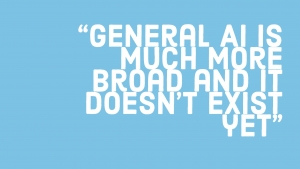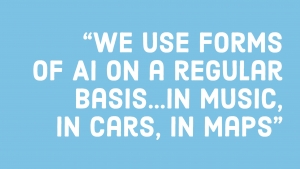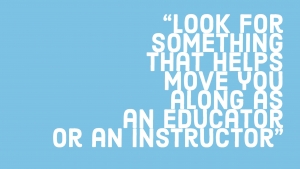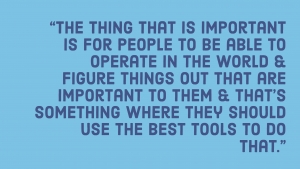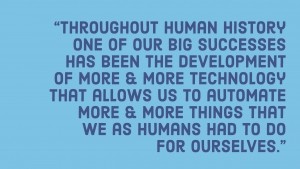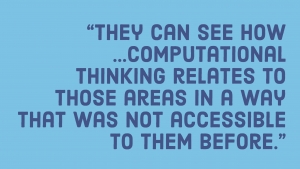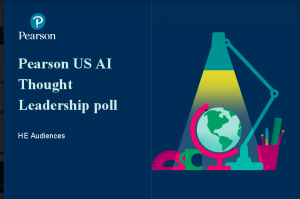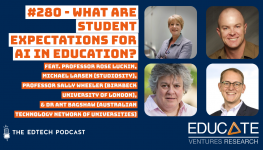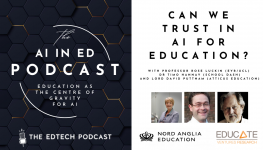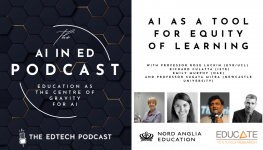#94 – What is AI & what has it got to do with me and my students?
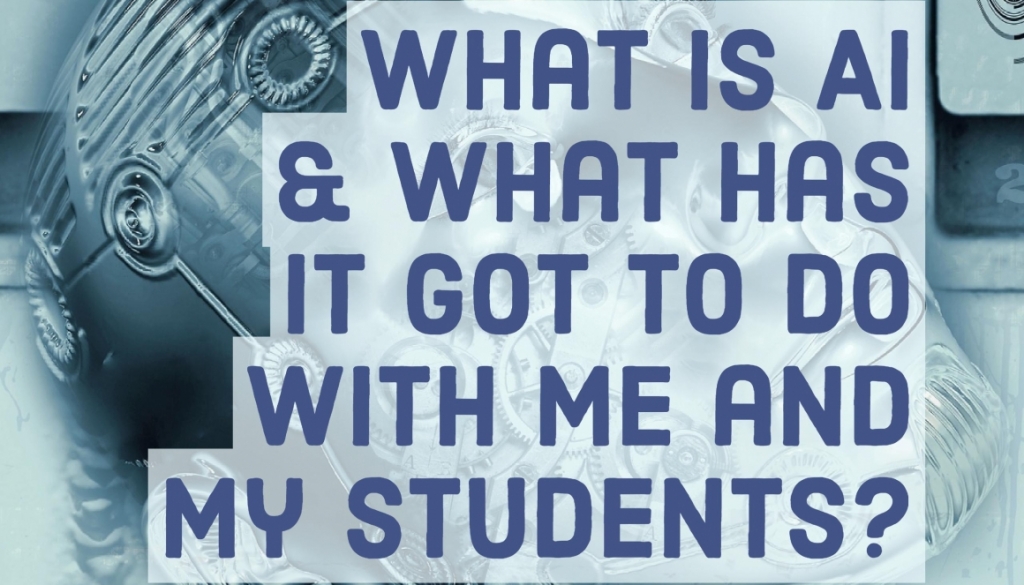
Podcast: Play in new window | Download
Subscribe on iTunes, Stitcher, TuneIn
Welcome to this episode of the Pearson Future Tech for Education Series on The Edtech Podcast. My name is Sophie Bailey and each week I’ll be exploring the challenges and opportunities of future tech for education with contributors from across industry, research and academia.
What’s in this episode?
With global leaders tweeting about artificial intelligence or AI as the next arms race, and forecasts predicting the near-term decimation of existing jobs markets due to artificial intelligence and automation, episode 2 is a great time to explore the question: What is AI and what has it got to do with me and my students?
What AI is and is not. The difference between narrow AI, general AI and super-intelligence. What type of AI is used now in education, and which AI do people fear, which may never exist? How do students and teachers already use AI to their advantage? Thinking about AI in the context of past educational tools, including the pocket calculator and printed encyclopedia. What questions might teachers want to use when thinking about AI in education?
People
 Sophie is the founder of the iTunes new and noteworthy, The Edtech Podcast. The mission of The Edtech Podcast is to improve the dialogue between ‘ed’ and ‘tech’ for better innovation, through storytelling. The podcast is downloaded 1500+ times a week, from up to 109 countries with the UK, US & Aus in the top 3. Sophie is a mentor and advisor within the edtech community. If she’s not interviewing a University Lecturer, School Leader, Ex-Angry Bird, NGO, or Investor about education innovation, she’s chasing her three year old around the park or binge-reading Homo Deus.
Sophie is the founder of the iTunes new and noteworthy, The Edtech Podcast. The mission of The Edtech Podcast is to improve the dialogue between ‘ed’ and ‘tech’ for better innovation, through storytelling. The podcast is downloaded 1500+ times a week, from up to 109 countries with the UK, US & Aus in the top 3. Sophie is a mentor and advisor within the edtech community. If she’s not interviewing a University Lecturer, School Leader, Ex-Angry Bird, NGO, or Investor about education innovation, she’s chasing her three year old around the park or binge-reading Homo Deus.
 Stephen Wolfram is the creator of Mathematica, Wolfram|Alpha and the Wolfram Language; the author of A New Kind of Science; and the founder and CEO of Wolfram Research. Over the course of nearly four decades, he has been a pioneer in the development and application of computational thinking—and has been responsible for many discoveries, inventions and innovations in science, technology and business.
Stephen Wolfram is the creator of Mathematica, Wolfram|Alpha and the Wolfram Language; the author of A New Kind of Science; and the founder and CEO of Wolfram Research. Over the course of nearly four decades, he has been a pioneer in the development and application of computational thinking—and has been responsible for many discoveries, inventions and innovations in science, technology and business. Murray Shanahan is Professor of Cognitive at Imperial College London and a Senior Research Scientist at DeepMind. He works on artificial intelligence, neurodynamics, and philosophy of mind. Educated at Imperial College and Cambridge University (King’s College), he became a full professor at Imperial in 2006, and joined DeepMind in 2017. He was scientific advisor to the film Ex Machina, and regularly appears in the media to comment on artificial intelligence and robotics. As well as many scientific papers he has published several books, including “Embodiment and the Inner Life” (Oxford University Press, 2010) and “The Technological Singularity” (MIT Press, 2015).
Murray Shanahan is Professor of Cognitive at Imperial College London and a Senior Research Scientist at DeepMind. He works on artificial intelligence, neurodynamics, and philosophy of mind. Educated at Imperial College and Cambridge University (King’s College), he became a full professor at Imperial in 2006, and joined DeepMind in 2017. He was scientific advisor to the film Ex Machina, and regularly appears in the media to comment on artificial intelligence and robotics. As well as many scientific papers he has published several books, including “Embodiment and the Inner Life” (Oxford University Press, 2010) and “The Technological Singularity” (MIT Press, 2015).
 Dr. Peter Foltz is Vice President in Pearson’s Advanced Computing and Data Sciences Laboratory and Research Professor at the University of Colorado’s Institute of Cognitive Science. His work covers reading comprehension and writing skills, 21st Century skills learning, large-scale data analytics, artificial intelligence and uses of machine learning and natural language processing for educational and clinical assessments. Much of his work has focused on techniques for automatically analyzing the meaning of language through writing and speaking. The approaches are used for assessing abilities, for providing feedback, and for understanding underlying cognitive mechanisms in the brain. The methods he has pioneered are used by millions of student annually to improve student achievement, expand student access, and make learning materials more affordable.
Dr. Peter Foltz is Vice President in Pearson’s Advanced Computing and Data Sciences Laboratory and Research Professor at the University of Colorado’s Institute of Cognitive Science. His work covers reading comprehension and writing skills, 21st Century skills learning, large-scale data analytics, artificial intelligence and uses of machine learning and natural language processing for educational and clinical assessments. Much of his work has focused on techniques for automatically analyzing the meaning of language through writing and speaking. The approaches are used for assessing abilities, for providing feedback, and for understanding underlying cognitive mechanisms in the brain. The methods he has pioneered are used by millions of student annually to improve student achievement, expand student access, and make learning materials more affordable.
Quotes from this episode
References
- Denis Hurley’s blog is available here
- Education Week on a Wolfram mentee, Emma Yang, who has had quite a few amazing accomplishments by the age of 13 here.
- Murray Shanahan’s
- Pearson “Intelligence Unleashed” AI in education study here
Tell us your story
We’d love to hear about innovative technology or approaches you are developing or using in education. Leave your stories in the comments below. Alternately, record a quick free voicemail via speakpipe for inclusion in the next episode. Finally, you can post your thoughts or follow-on links via twitter @podcastedtech @denishurley or via The Edtech Podcast Facebook page.
The Pearson Future Tech for Education Series is produced by The Edtech Podcast and supported by Pearson Education. If you’re interested in the themes that come out of the series, check out more ideas in the “open series” here.

